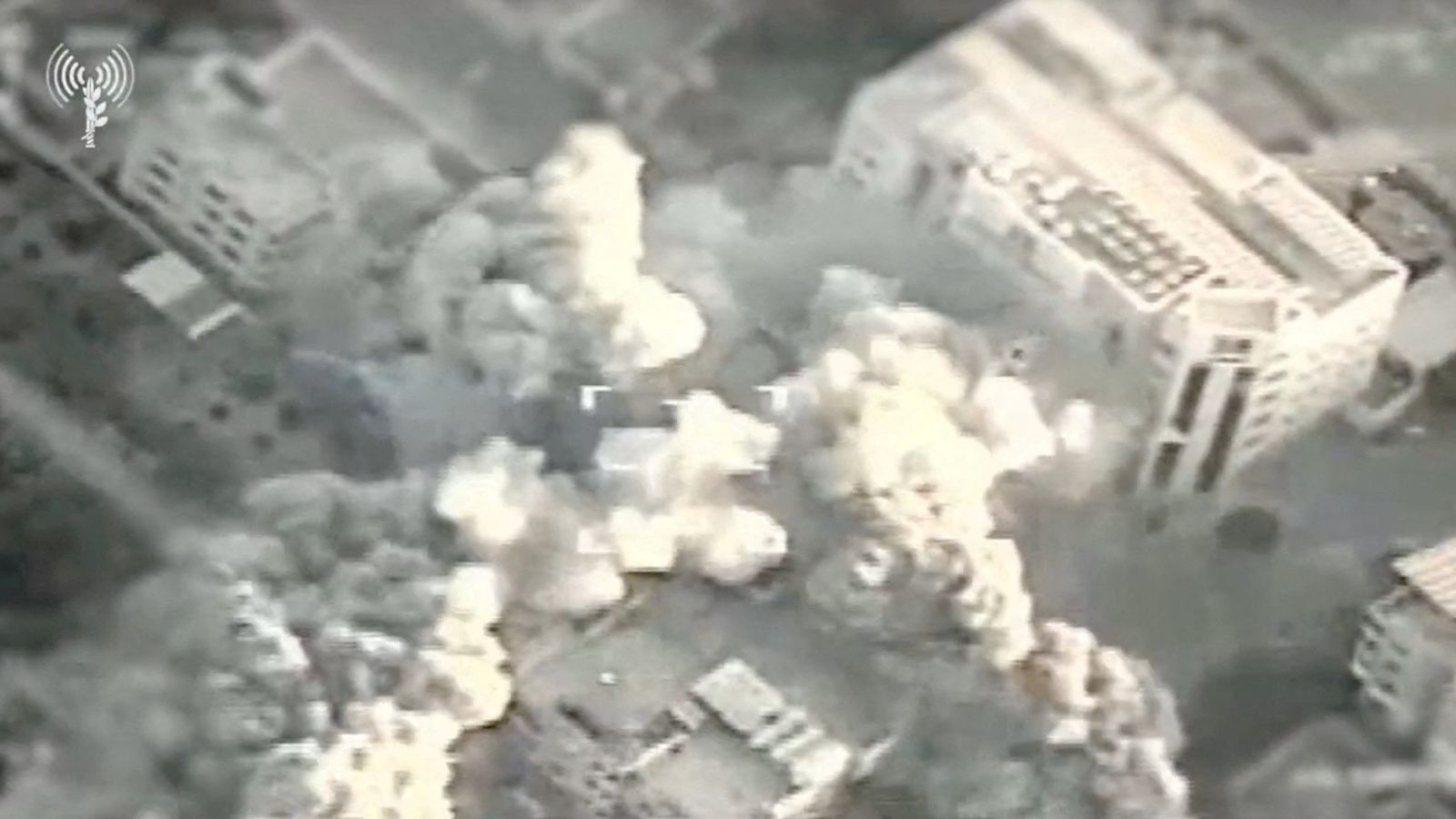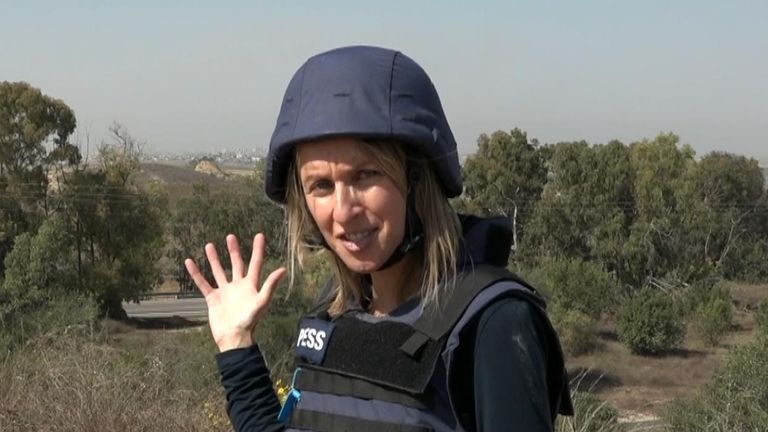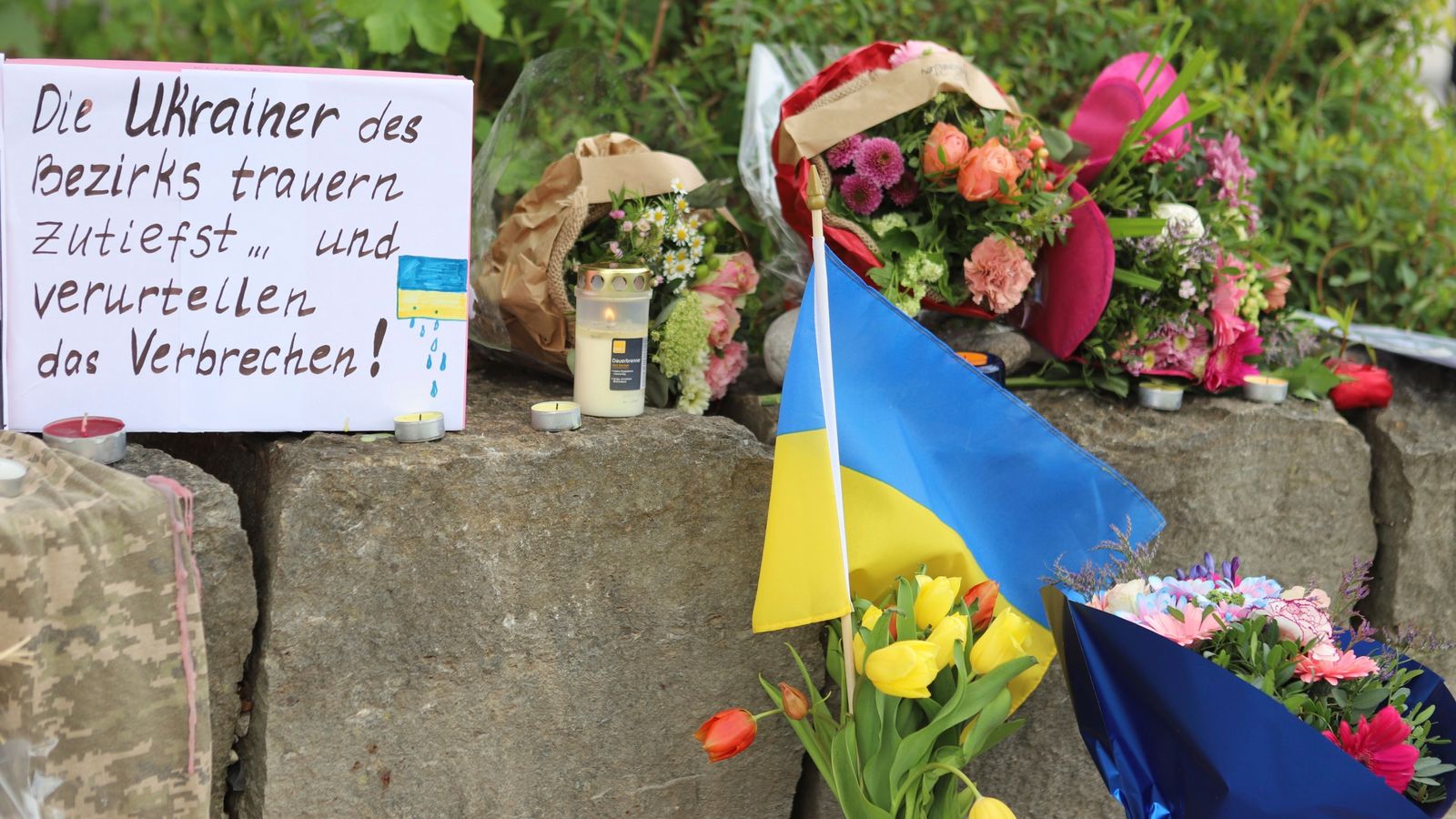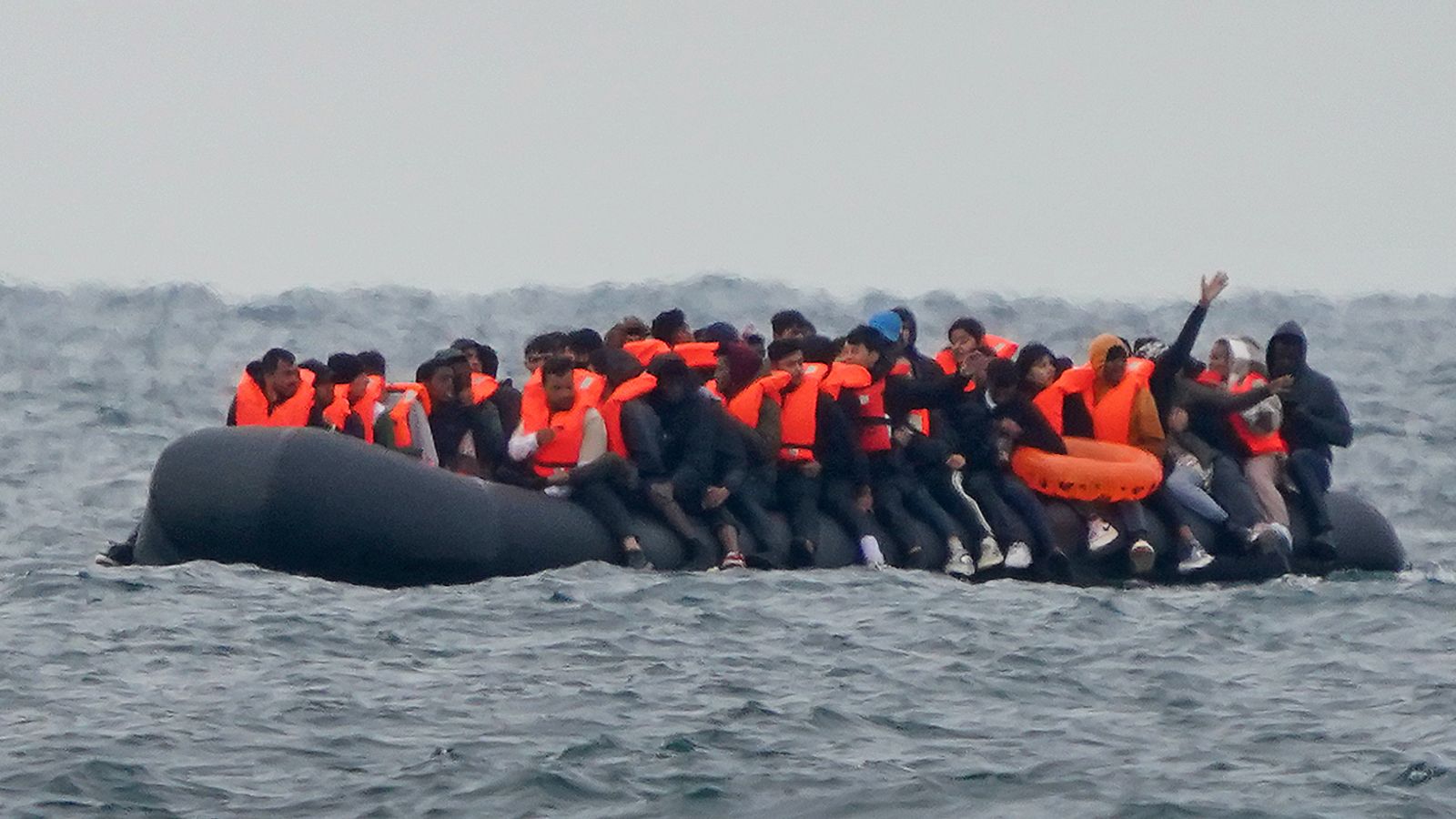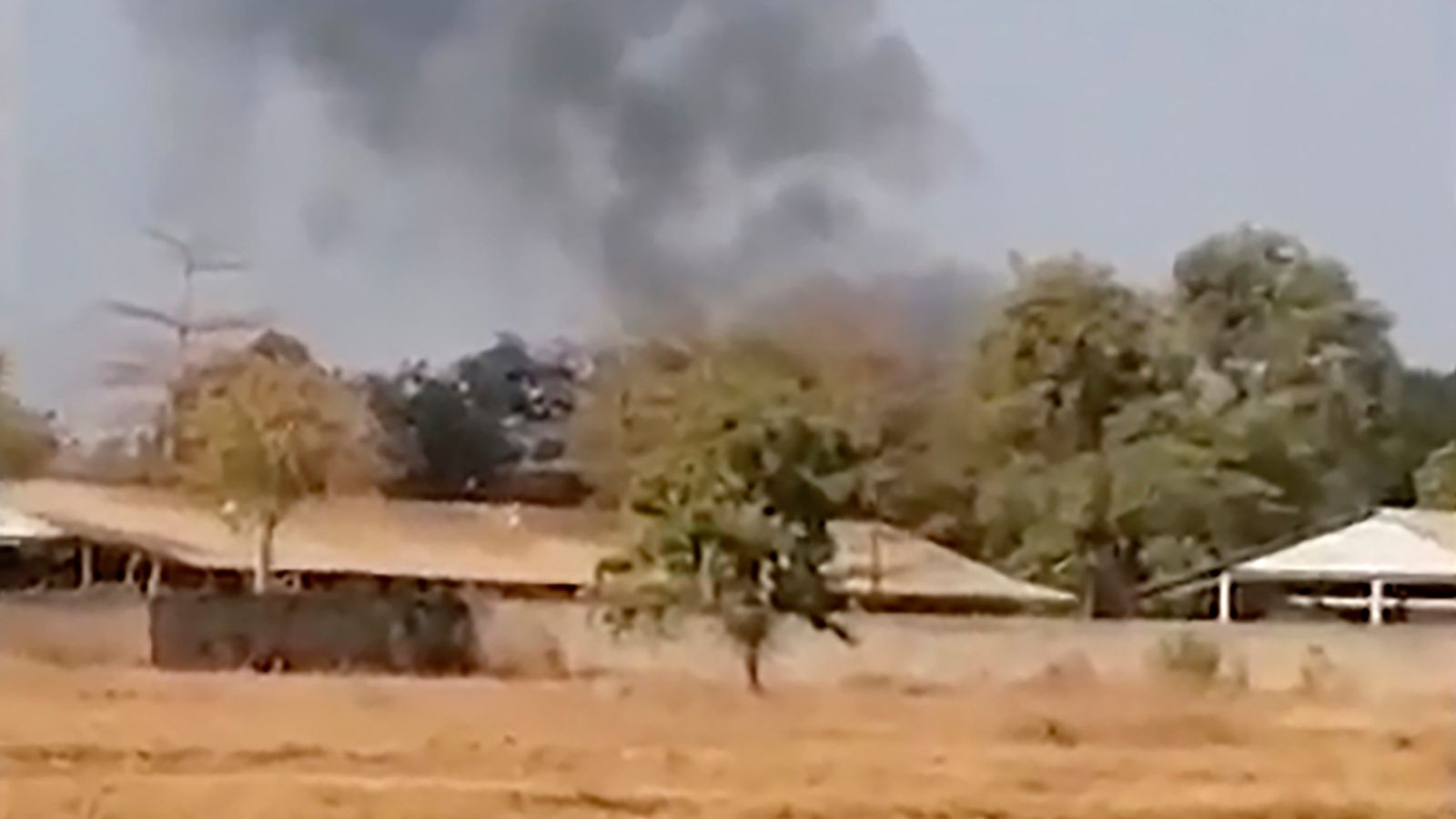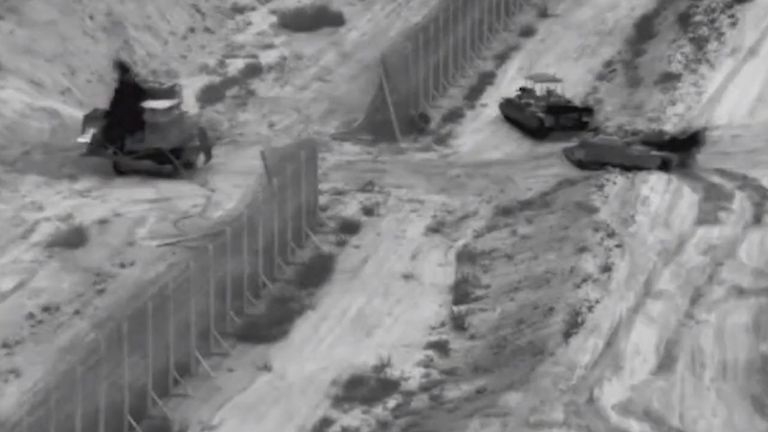
Israel has staged the “biggest incursion” of the war so far – briefly sending tanks and troops into northern Gaza.
According to the Israeli Defence Forces, the raid is designed to “prepare the battlefield” before a widely expected ground invasion.
But what do such preparations involve – and how significant was this overnight mission?
And why does Israel continue to delay a full-scale ground invasion of Gaza, despite suggesting it has been preparing for one for weeks?
Follow live: Hamas calls for protests – as photos reveal destruction
Testing Hamas’s defences before an invasion
Sky’s military analyst Sean Bell says small-scale incursions are used to test Hamas’s defensive capability – and clear anti-tank defences such as mines and obstructions.
“Hamas had clearly spent some months preparing their offensive on 7 October – and Israel will want to minimise the risk involved with any ground incursion,” he explained.
Mr Bell thinks this probably won’t be the IDF’s last incursion before a larger-scale invasion.
“It is clear that Israel intends to conduct a significantly larger invasion at some stage – so is prepared to take the risks involved in this latest escalation,” he said.
“Israel will also be keen to exploit its military advantage over Hamas, so leveraging its satellite technology and drones – as well as intercepting and jamming communications – is a vital step to ensuring any subsequent ground invasion is conducted as efficiently as possible.”
All of Hamas’s communication systems would have “lit up” during last night’s raid, Mr Bell says – providing Israel with an opportunity to intercept them.
The incursion would also have allowed Israel to bulldozer through anti-tank defences, identify minefields and gather intelligence on what positions Hamas fighters were occupying, he added.
How Hamas could respond to biggest Israeli ground raid yet
The recent incursions are unlikely to come as much of a surprise to Hamas, which would have anticipated how Israel might respond.
“Tactically, Hamas will have anti-tank weapons that could inflict significant damage to Israeli armour – and use a combination of mines, rockets, guns and booby-traps to make life as difficult as possible for the IDF,” Mr Bell explained.
He also expects that Hamas will “drip-feed” the release of hostages to distract the international community and increase pressure on Israel to stop military attacks.
Read more:
British-Israeli died bravely throwing back Hamas grenades
What does collective punishment mean amid Gaza debate?
The huge risks for Hezbollah of getting involved in conflict
Can Israel destroy Hamas and how would invasion work?
The IDF has been executing devastating air raids on the Gaza Strip for the past two weeks – but Prime Minister Benjamin Netanyahu has refused to elaborate on when, or how, a ground invasion will take place.
According to Mr Bell, any offensive would be fraught with difficulty.
“The objective apparently is to destroy Hamas, it’s very difficult to see how you can do that militarily,” Mr Bell cautioned.
“Hamas is more of an idea than an actual army.”
He said Israel may not send troops into Gaza City itself, but its forces may put a “ring of steel” around it.
“Any incursion into the city would involve an urban battle that usually favours the defenders,” the analyst warned.
“Hamas would almost certainly use anti-tank weapons and mines to slow any IDF advance, and could fall back to the relative safety of the urban environment.
“The network of Hamas tunnels under the city – ‘the Gaza Metro’ – provide Hamas with a tactical advantage over the militarily superior IDF.”
With over 200 people still being held hostage by Hamas, Mr Bell went on to warn that a ground invasion would “almost certainly” endanger those being held captive near battlefields.
That’s why the IDF may opt to encircle Gaza City – before using special forces in raids in a bid to recover hostages.

